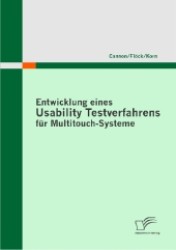Full Description
Beyond the Online Course: Leadership Perspectives on e-Learning addresses a need for the growing body of professionals who are called upon to lead the online/distance learning efforts at their various organizations. It will also be of interest to those wishing to prepare for leadership positions or who are engaged in research and study of issues 'beyond the online course.' The book brings together scholarly and practice-based writings from the pages of the Quarterly Review of Distance Education and Distance Learning for Educators, Trainers and Leaders.
Contents
Foreword; Melanie N. Clay.
Preface, Beyond the Online Course; Jason B. Huett and Anthony A. Piña.
Part I. Leading Innovation and Change.
Chapter 1. Institutionalization of Distance Education in Higher Education; Anthony A. Piña.
Chapter 2. Attributes and Barriers Impacting Diffusion of Online Education at the Institutional Level: Considering Faculty Perceptions; Jason Neben.
Chapter 3. Barriers to Adoption of Technology-Mediated Distance Education in Higher-Education Institutions; Baiyun Chen.
Chapter 4. Six Barriers Causing Educators to Resist Teaching Online, and How Institutions Can Break Them; Dana Gutman.
Chapter 5. Bridging the Divide: Reconciling Administrator and Faculty Concerns Regarding Online Education; Leah E. Wickersham and Julie McElhany.
Part II. Leading Course and Program Design.
Chapter 6. Expert Instructional Designer Voices: Leadership Competencies Critical to Global Practice and Quality Online Learning Designs; Marcia L. Ashbaugh.
Chapter 7. Three Levels of Planned E-learning Interactions: A Framework for Grounding Research and the Design of E-learning Programs; Atsusi Hirumi.
Chapter 8. Key Interactions for Online Programs Between Faculty, Students, Technologies, and Educational Institutions: A Holistic Framework; Jomon A. Paul and Justin D. Cochran.
Chapter 9. Universal Course Shell Template Design and Implementation to Enhance Student Outcomes in Online Coursework; Arthur J. Borgemenke.
Chapter 10. Knowledge Building in an Online Cohort; Mary E. Engstrom, Susan A. Santo and Rosanne M. Yost.
Chapter 11. Converting a Conventional University to a Dual Mode Institution: The Case of the University of Botswana; Ontiretse S. Tau.
Part III. Leading the Development and Support of Online Students.
Chapter 12. Supporting the Distant Student: The Effect of ARCS-Based Strategies on Confidence and Performance; Jason B. Huett, Leslie Moller, Jon Young, Marty Bray and Kimberly C. Huett.
Chapter 13. Online Instruction: Student Satisfaction, Kudos, and Pet Peeves; C. Eugene Walker and Erika Kell.
Chapter 14. Assistive Technology: Enhancing the Life Skills of Students with Learning Disabilities; Aries Cobb.
Chapter 15. Supervision on Site: A Critical Factor in the Online Facilitated Internship; Kaye B. Dotson and Hui Bian.
Part IV. Leading the Development and Support of Online Faculty and Staff.
Chapter 16. Effects of Staff Training and Development on Professional Abilities of University Teachers in Distance Learning Systems; Shahinshah Babar Khan and Saeed-ul-Hasan Chishti.
Chapter 17. Maximizing HR Professionals' Leadership Role in E-Learning for Organizational Effectiveness; Jane Waweru.
Chapter 18. Off-Site Faculty Perspectives on Online Experiences; Barbara L. Stewart, Carole Goodson and Susan L. Miertschin.
Chapter 19. Pragmatic Methods to Reduce Dishonesty in Web-Based Courses; Newell Chiesl.
Chapter 20. Assessing Online Faculty; Anthony A. Piña and Larry Bohn.
Chapter 21. How University Faculty Members Develop Their Online Teaching Skills; Steven W. Schmidt, Elizabeth Hodge and Christina Tschida.
Part V. Legal and Accreditation Issues.
Chapter 22. Accreditation, Benchmarks, and Guidelines in Distance Education; Soonhwa Seok.
Chapter 23. Who Owns Online Course Intellectual Property; Douglas A. Kranch.
Chapter 24. Intellectual Property and Online Courses Policies at Major Research Universities; Kathryn Ann Loggie, Ann E. Barron, Elizabeth Gulitz, Tina N. Hohlfield, Jeffrey D. Kromrey and Phyllis Sweeney.
Chapter 25. The Legal Environment of Accessible Post-secondary Online Learning; Kevin L. Crow.








